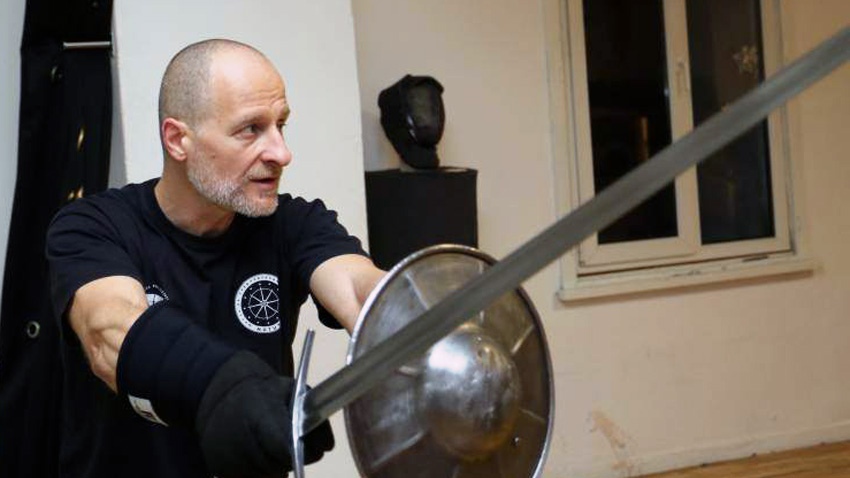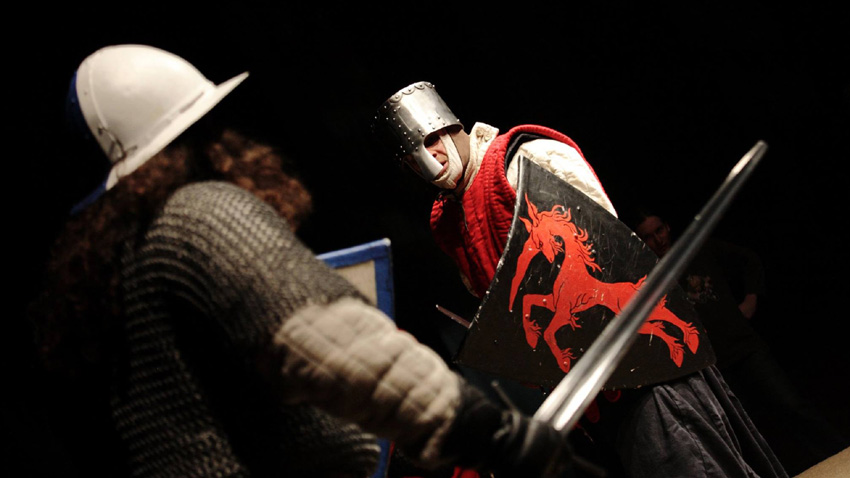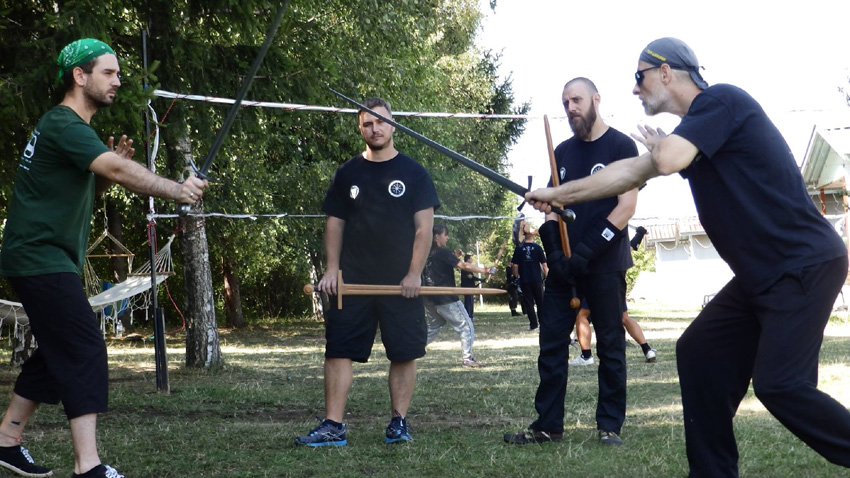“Knight” is a word that immediately brings to mind a man in shining armour brandishing a sword. Many have had childhood dreams of being “knights” and “conquering” castles or fighting imaginary dragons, many have drawn inspiration from books like Henryk Sienkiewicz’s “Knights of the Cross”. Miroslav Lesichkov was just such a child.
In 2003 Miroslav set up the only medieval European fencing club in Bulgaria. It started out as an experimental group for the study of medieval warrior arts. The art of Medieval European fencing, as recorded in 13th – 16th century manuscripts and printed documents has two main branches – the Italian and the German tradition. One of the fundamental manuscripts for the study of medieval European fencing tradition is the Dobringer Hausbuch from 1389. It is the first treatise making mention of the Grand Master Johannes Liechtenauer and his art of fencing - Kunst des Fechtens – that laid the foundations of German fencing tradition right up to the end of the 16th century. A document paramount to Italian tradition is the illustrated manuscript Fiore dei Liberi – Flos Duellatorum from 1409.

How has the traditional art of war in Bulgaria developed since the Middle Ages? Miroslav Lesichkov:
“It is a major cultural legacy on the European continent as a whole. Europe underwent vigorous cultural development and a universal warrior art took shape. It is important that we preserve cultural heritage, because once we lose the knowledge of who we are and who we have been, we shall perhaps lose sight of what we should be. This is a fascinating cultural tradition. And though it may not be culture as such – it is the culture of warfare and the military traditions of the age – still, it can foster a host of qualities physically, as well as spiritually. There are three main disciplines we study. The first begins with the one-handed sword, which is basic to learning the fencing alphabet and grammar, so to say. Then we add different instruments, like the small shield called “buckler” or the fist shield – that is our second discipline. The third is the so-called longsword. It is usually held in both hands though there are times when holding it in one hand affords a tactical advantage, that is why it also goes by the name of “bastard sword”.

The practice swords used at the club are accurate replicas of medieval swords. The best place to have them made is Hungary and USA, under the expert guidance of a Swedish blacksmith. They weight 1,000 to 1,300 grams for one-handed swords and 1,400 to 2,300 grams for two-handed swords, but in the right hands, they wield a terrible power. Though unhoned weapons are used, if they are not used properly, they may inflict considerable damage. That is why the outfit is so important – gauntlets, masks with insulated meshing, throat and forearm protectors and, for more vigorous exercises – thick cloth armour plating. The club is open to all people aged 16 or over but there is one member who is 61 whose performance is in no way inferior to the younger members. For some years now the club has been organizing summer camps.

But what message does medieval fencing convey? Miroslav Lesichkov:
“For me it is not some kind of game, something divorced from reality. As I see it, it is a close to perfect kind of survival wisdom, coming to us from so long ago, which we can learn from and use in modern life,” Miroslav says.
English version: Milena Daynova
Photos: private libraryFor the 30th consecutive year, the Bulgarian Posts organize a contest for the most beautiful letter to Santa Claus. Letters must be sent by 18 December with a stamped envelope "For Santa", the sender's address indicated and postage paid. All..
The Varna Regional Library "Pencho Slaveykov" has acquired a humanoid robot. It was unveiled by the library's director, Radka Kalcheva, during the celebration of the 20th anniversary of the library's American Corner, in the presence of Eric Brasel, the..
1000 participants will take part in the first Burgas Half Marathon, which will take place this Sunday, 24 November. The event will bring together amateurs and professionals of different ages who will compete in three distances - 1 km, 10.5 km and 21 km...
For the 30th consecutive year, the Bulgarian Posts organize a contest for the most beautiful letter to Santa Claus. Letters must be sent by 18..

+359 2 9336 661
